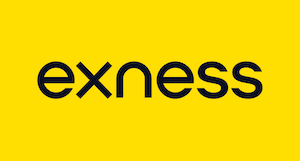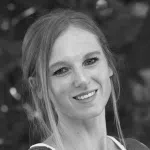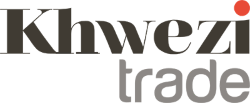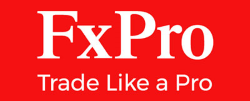For over a decade, FxScouts.co.za has been reviewing forex brokers and provided in-depth analyses. Our extensive research and unique testing methodology ensures that all broker reviews are accurate and fair with hundreds of thousands of data points generated annually. Since 2012, we’ve tested over 180 brokers across global and South African markets. Our team of professionals are frequently cited in global and regional media, shaping market conversations and trends.
-
Best Forex Brokers
Our top-rated Forex brokers
-
Brokers for Beginners
Start trading here
-
Forex Demo Accounts
Learn to trade with no risk
-
ZAR Trading Accounts
Save on conversion fees
-
Lowest Spread Brokers
Raw spreads & low commissions
-
ECN Brokers
Trade with Direct Market Access
-
No-deposit Bonuses
Live trading with no deposit
-
High Leverage Brokers
Extend your buying power
-
Islamic Account Brokers
Best accounts for Muslim traders
-
Market Maker Brokers
Fixed spreads & instant execution
-
All Trading Platforms
Find a platform that works for you
-
TradingView Brokers
The top TradingView brokers
-
MetaTrader4 Brokers
The top MT4 brokers in SA
-
MetaTrader5 Brokers
The top MT5 brokers in SA
-
cTrader Brokers
The top cTrader brokers in SA
-
Forex Trading Apps
Trade on the go from your phone
-
Copy Trading Brokers
Copy professional traders
75-90% of retail traders lose money trading Forex and CFDs. You should consider whether you understand how CFDs and leveraged trading work and if you can afford the high risk of losing your money. We may receive compensation when you click on links to products we review. Please read our advertising disclosure. By using this website, you agree to our Terms of Service.
Summary
Broker | Broker Score | Official Site | ZAR Account | FSCA (SA) Regulated | Min. Deposit | Leverage | Beginner Friendly | Cost of Trading | EUR/USD - Standard Spread | EUR/USD - Raw Spread | Regulated By | Compare |
|---|---|---|---|---|---|---|---|---|---|---|---|---|
 | 4.59 /5 Read Review | Visit Broker > 76% of retail CFD accounts lose money | Yes | Yes | ZAR 1900 | 400:1 | Excellent | USD 9 | 0.90 pips | 0.90 pips |        | |
 | 4.32 /5 Read Review | Visit Broker > 71.67% of retail CFD accounts lose money | Yes | Yes | USD 3 | Unlimited:1 | Standard | USD 7 | 0.70 pips | 0 pips |      | |
3.72 /5 Read Review | Visit Broker > of retail CFD accounts lose money | Yes | Yes | ZAR 500 | 400:1 | Standard | USD 10 | 1.00 pips | 0.60 pips |  | ||
 | 4.45 /5 Read Review | Visit Broker > 75.33% of retail CFD accounts lose money | Yes | Yes | USD 5 | 1000:1 | Excellent | USD 6 | 0.60 pips | 0.60 pips |      | |
4.68 /5 Read Review | Visit Broker > 70.3% of retail CFD accounts lose money | Yes | Yes | ZAR 1500 | 300:1 | Excellent | USD 7 | 0.70 pips | 0.60 pips |     | ||
4.39 /5 Read Review | Visit Broker > 71.58% of retail CFD accounts lose money | Yes | Yes | USD 100 | 200:1 | Excellent | USD 14 | 1.40 pips | 0.40 pips |      | ||
 | 4.58 /5 Read Review | Visit Broker > 70% of retail CFD accounts lose money | No | Yes | USD 100 | 1000:1 | Excellent | USD 6 | 0.00 pips | 0.10 pips |       | |
 | 4.53 /5 Read Review | Visit Broker > 72.90% of retail CFD accounts lose money | Yes | Yes | ZAR 0 | 2000:1 | Excellent | USD 10 | 1.00 pips | 0.10 pips |       | |
 | 4.69 /5 Read Review | Visit Broker > 70% of retail CFD accounts lose money | No | Yes | USD 0 | 200:1 | Excellent | USD 6 | 0.60 pips | 0.85 pips |         |
Why Choose a ZAR Forex Trading Account?
There are three good reasons for you to have a trading account in Rand (ZAR):
- If you trade FX pairs with ZAR as the quote currency such as USD/ZAR or EUR/ZAR you will avoid currency conversion when opening and closing a trade. This will save you money as most brokers charge a commission for currency conversions when trading and will often give you a bad exchange rate.
- If you deposit ZAR into a normal US Dollar (USD) trading account, your Rands are converted to USD first. There is usually a fee for this currency conversion and you may lose money on the exchange rate too. To make matters worse, you will be charged another conversion fee when you withdraw from your trading account. With a ZAR trading account, you don’t have to worry about fees or exchange rates.
- If your broker has ZAR trading accounts, they probably keep your funds in a South African bank. This means that deposits and withdrawals to and from your personal bank account will be much quicker and cheaper.
We go into more detail on the advantages (and disadvantages) of using a ZAR Account for Forex trading below the broker reviews.
ZAR Account Broker Reviews
Below, we’ve picked out the ten best brokers in South Africa with ZAR accounts. In our short reviews, we look at the trading costs on their ZAR accounts and why we think they are safe to trade with. When we compare brokers we also look at a few other things, like the number and quality of trading platforms on offer and how good the customer service is. We’ve also highlighted any other unique features that are important to consider.
AvaTrade – ZAR Accounts with No Commission
Founded in 2006 and FSCA-regulated since 2015, AvaTrade (FSP: 45984) offers an excellent trading environment for both beginner and experienced traders. AvaTrade features low spreads on a single account, award-winning customer service, an excellent mobile trading platform, AvaTradeGo and great trading tools like AvaProtect, allowing traders to purchase loss protection for a time directly from the AvaTradeGo app. ZAR accounts are also available, and AvaTrade offers a wide range of instruments. The only possible downside is that the minimum deposit here is 100 USD (1500 ZAR), which is higher than many other brokers operating in South Africa.
Maximum leverage at AvaTrade is 400:1, and spreads are some of the tightest we have seen for an account with only a 1500 ZAR minimum deposit and no commission – as low as 0.9 pips on the EUR/USD. AvaTrade has no fees for either deposits or withdrawals and a commitment to processing your funding request as fast as possible. The customer service team is available 24/5 via telephone, live chat, and email.
Exness – High Leverage ZAR Account
Fees and Trading Conditions: Exness’ Standard Account on MT4 requires a minimum deposit of 140 Rand (10 USD) and has average spreads on the EUR/USD of 1 pip. This account is a good, low-risk opportunity for beginner Forex traders to get experience in the live market. The Pro Account on MT4 also has low trading costs, offering commission-free trading with spreads averaging 0.6 pips EUR/USD – but the minimum deposit is 200 USD (3000 ZAR). All accounts feature high leverage up to 2000:1.
Regulation and Security: Founded in 2008, Exness Group has been FSCA-regulated since 2020 (FSP 51024) and offers trading on 100+ Forex pairs, cryptocurrencies, stock CFDs, indices and commodities. Currently, South African trading accounts are regulated by the Seychelles FSA, which does not require brokers to offer negative balance protection and trader’s funds may not be kept in South African banks.
FEATURES
- Nine account types for both beginners and more experienced traders
- ZAR Accounts for South African clients, no conversions fees from Rand bank accounts
- Automated instant withdrawal system, with free withdrawals to e-wallets.
- TC.Technical Analysis indicator from the international analytical agency Trading Central
Khwezi Trade – Best South African Broker with ZAR Accounts
| 🏦 Min. Deposit | ZAR 500 |
| 🛡️ Regulated By | FSCA |
| 💵 Trading Cost | USD 10 |
| ⚖️ Max. Leverage | 400:1 |
| 💹 Copy Trading | Yes |
| 🖥️ Platforms | MT5 |
| 💱 Instruments | Commodities, Forex, Indices |
Trading Conditions and Fees: KhweziTrade supports the MT4 trading platform and the minimum deposit to open the entry-level Silver Trading account is 500 Rand, with spreads starting at 1.4 pips. The Gold Account requires a minimum deposit of 2,000 ZAR, the Platinum Account 10,000 ZAR and the Diamond Account 30,000 ZAR. Maximum leverage is 200:1 but can be increased on a case-by-case basis.
Regulation and Security: Based in Cape Town and winner of our Award for Best Forex Broker in Africa, Khwezi Trade is an FSCA-regulated broker (FSP 44816) with fast STP trade execution. It is renowned for its customer-focused approach to traders and all client trading accounts are kept at Standard Bank in South Africa, providing an additional level of security for South African traders.
FEATURES
- Personal account manager for all clients
- Customer support in English, Afrikaans, Zulu, Sotho, and Xhosa.
- No deposit or withdrawal fees, all withdrawals are processed same-day
XM – ZAR Account with Tight Spreads
Fees and Trading Conditions: The XM Ultra-Low Account is one of the best ZAR accounts available to South African traders. XM’s Ultra-Low Account is available on the MT4 trading platform with a minimum deposit of 700 Rand (50 USD) and some of the lowest trading costs in the Forex trading industry, with spreads starting at 0.6 pips on the EUR/USD. In addition, all XM’s ZAR accounts have a maximum leverage of 1000:1 and negative balance protection. If 700 Rand is too much, minimum deposits start from 5 Rand (5 USD) on the entry-level account, though spreads will be wider. XM offers CFD trading on Forex, stock CFDs, commodities, equities, precious metals, energies, and shares.
Regulation and Security: Founded in 2009, XM is one of the most well-regulated brokers in the Forex industry. Although it is not regulated by the South African FSCA, it is regulated by CySEC, ASIC, the FCA and the IFSC Belize. South African traders will fall under IFSC regulation which allows higher leverage limits than the other regulators. Overall, XM is considered a safe broker.
FEATURES
- ZAR Accounts for South African traders, no conversion fees from Rand bank accounts
- MT4 video tutorials: Opening an account, complex order types, and backtesting Expert Advisors.
- XM Ultra-Low account: A minimum deposit of 50 USD (700 Rand) and spreads start at 0.6 pips with no commission.
Markets.com – Low Costs, R1500 Min Deposit and 2000+ Instruments
Fees and Trading Conditions: Markets.com offers commission-free ZAR trading accounts to South African clients on its Markets.com trading platform, available as a mobile app on Android and iOS and through a web browser. The minimum deposit is 1500 Rand and traders have a choice of thousands of instruments, with 60+ FX pairs available to trade. Spreads start at 0.6 pips on the EUR/USD and leverage is available up to 1:300. Other instruments include stocks, cryptocurrencies, commodities and over 30 major market indices.
Regulation and Security: Founded in 2010, Markets.com has been regulated by the FSCA in South Africa (FSP 46860) since 2014. All traders’ funds are held in segregated accounts at top-tier banks, and all traders receive automatic negative balance protection. Additionally, Markets.com has taken out a $1,000,000 insurance policy covering clients in all regulated territories.
FEATURES
- A wide variety of fundamental, technical and sentiment-based trading tools and expert analysis, in addition to in-depth charting and comparison tools
- Traders can view orders, related instruments, and open positions with a single click
- All traders are assigned a dedicated Account Manager
FxPro – ZAR Accounts on MT4, MT5 and cTrader
Fees and Trading Conditions: FxPro’s ZAR trading accounts all feature market execution and minimum deposits starting at 1500 Rand. Both the MT4 and MT5 accounts offer commission-free trading, while the cTrader account has a commission but tighter spreads – down to 0.3 pips on the EUR/USD. In addition, FxPro has its own award-winning EDGE web-based trading platform which beginners may find easier to use.
Regulation and Security: Founded in 2006 and headquartered in London, FxPro has 873,000 traders from 173 countries around the world and is one of the most respected brokers in the industry. FSCA-regulated (FSP 45052) since 2015, most trades are executed in less than 10 milliseconds and only 9% of orders received negative slippage. All South African clients of FxPro will have negative balance protection and their funds are kept in South African banks.
FEATURES
- Hedging, scalping, and signal/robot trading on MT4, MT5 and cTrader
- Funds kept in FxPro Wallet are separate from the trading account, so are not considered when calculating margin.
- All deposits and withdrawals from the FxPro Wallet are free of charge via all methods.
TickMill – ZAR Account with the Lowest Trading Costs
Founded in the UK in 2014 and regulated by FSCA in South Africa, Tickmill is an MT4/MT5 broker with ZAR trading accounts and some of the lowest trading costs available. While the Classic Account has relatively wide spreads and no commission, the Pro Account offers variable spreads down to 0 pips and a 4 USD (round turn) commission – one of the lowest commissions in the industry – and only a 1600 ZAR/100 USD minimum deposit. Tickmill recently started offering support for MT5 and has also added Bitcoin, Ethereum and Litecoin trading for crypto traders.
FEATURES
- $30 No Deposit Bonus “Welcome Account”
- VIP Account with even lower commissions (down to 2 USD round turn) but a minimum balance of 50,000 USD.
- Excellent trading tools for MT4: AutoChartist, Myfxbook and a subsidised VPS service.
HFM (HotForex) – 70 Rand Micro Account
Fees and Trading Conditions: HFM is popular among South African traders looking for a low-cost ZAR Account. Leverage is flexible up to 1000:1 on the Micro Account, where the minimum deposit is 70 Rand and micro-lots are unlocked; this account is especially good for beginner traders looking to minimise risk. All trades feature STP execution, and for more experienced traders, HFM has a range of other accounts with minimum deposits between 1400-2800 ZAR. HFM has CFD trading on Forex, cryptocurrencies, commodities, indices, shares, bonds, and ETFs.
Regulation and Security: Founded in 2009, HFM is regulated by the FCA, CySEC, and the South African FSCA (FSP 46632). It has a South African customer support team, and all South African traders have negative balance protection.
FEATURES
- FSCA and international regulation and No-Dealing Desk STP execution
- 70 Rand minimum deposit Micro Account with 1000:1 leverage
- Dedicated market analysis from in-house experts, including market news, technical analysis, special reports, and monthly outlooks.
- 24/5 customer support with toll-free local phone numbers.
IG – ZAR Accounts and 18,000+ CFDs
| 🏦 Min. Deposit | USD 0 |
| 🛡️ Regulated By | ASIC, BaFin, DFSA, CFTC |
| 💵 Trading Cost | USD 6 |
| ⚖️ Max. Leverage | 200:1 |
| 💹 Copy Trading | No |
| 🖥️ Platforms | MT4, L2 Dealer, ProRealTime |
| 💱 Instruments | Bonds, Commodities, Cryptocurrencies, Digital 100s, Stock CFDs, ETFs, Forex, Indices, Interest Rates |
One of the world’s largest brokers, IG is a market maker regulated by the FCA, ASIC and the FSCA in South Africa. IG offers ZAR accounts on a Domestic Account and International Account. The Domestic Demo Account allows South African traders to trade in Rand but does not allow for Forex trading – the only tradeable markets are South African stocks, ETFs, and the SA 40 index.
The International Account requires a 4000 ZAR minimum deposit but offers access to all 18,000+ instruments available at IG (including all Forex pairs). All IG clients receive a Domestic Account and an International Account upon registration.
With the Award for Best Forex Educators (UK Forex Awards), IG provides accessible and high-quality educational material for beginner traders. Market analysis is equally superb, and 24-hour customer support is available from IG’s offices in Johannesburg.
Advantages of ZAR Forex Trading Accounts
1. Avoid Currency Conversion Fees when Making a Deposit
This is the greatest advantage of having a ZAR Trading Account. If you have a USD trading account, your broker or bank will charge conversion fees and maybe commission when you make a deposit or withdrawal in ZAR. Most international brokers will also give you a poor exchange rate from ZAR to USD, leading to more lost money. These losses can add up over time, especially if you are a high-volume trader.
2. Avoid Currency Conversion when Opening or Closing a Trade
Another important advantage, though this only works if you trade currency pairs with the ZAR as the quote currency, such as USD/ZAR or EUR/ZAR. Some brokers will also charge a commission and give you a poor exchange rate, so these trading costs can mount up over time. If you mainly trade currency pairs without the ZAR as the quote currency, such as EUR/USD, then having a ZAR account could be a disadvantage over time (see more detail below in the section on disadvantages).3.
3. Faster Deposits and Withdrawals
Usually, but not always, making deposits and withdrawals from ZAR Accounts is much faster than with USD accounts. This depends on whether your Forex broker keeps your ZAR trading account in a South African bank. If your ZAR trading account is kept overseas, it can still take 2-3 days for deposits and withdrawals to reflect.
4. Cheaper Bank Transfer and Credit Card Funding
ZAR accounts are also cheaper for traders who use bank transfers or credit cards to fund their accounts. If you ask your bank or credit card company to fund a USD account, you can lose 7-10% of the value of your deposit in conversion charges and added fees. Fund transfers are also much quicker between local banks, so traders can generally make deposits and withdrawals within 24 hours.
5. South African Legal Protection
Another benefit of having a ZAR account is that if your funds are kept in a South African bank, they will be protected by SA laws if your broker declares bankruptcy. This will not be the case with a USD account at an international broker: Even if your funds are kept in a segregated account, they will be held in an overseas bank account.
6. South African Customer Service Teams
A final factor to consider when opening a ZAR trading account is the quality of customer service offered by a broker. Brokers with ZAR trading accounts tend to have South African customer support. Brokers with local customer support have a better understanding of the issues new traders in South Africa have when setting up their accounts. They also can offer support in multiple languages, including Afrikaans, Xhosa, and Zulu.
Disadvantages of ZAR Forex Trading Accounts
1. Conversion with non-ZAR Currency Pairs
For South Africans, there is only one real drawback to trading with a ZAR Account, but it’s a big one. If you are trading currency pairs without ZAR as the quote currency (i.e. EUR/USD, USD/JPY, etc.) you will be converting currency every time you trade.
To avoid currency conversion when trading, it is best to use the same base currency as the quote currency of the currency pairs that you trade the most. For most traders, this is the USD as three of the most traded pairs feature the USD as the quote currency (EUR/USD, GBP/USD and AUD/USD).
If you want to trade USD quoted currency pairs, you should probably keep your trading account balance in USD, even if it means converting to and from ZAR every time you make a deposit or withdrawal.
Many South African traders have two trading accounts, one in ZAR and the other USD. They use the ZAR account to trade ZAR-quoted currency pairs and use the USD account to trade USD-quoted currency pairs.
FAQS
What is a ZAR trading account?
A ZAR trading account is a Forex trading account with the Rand as its base currency. ZAR trading accounts are unusual because most trading accounts are based in US Dollars.
What are the benefits of having a ZAR trading account?
South African traders with ZAR accounts will avoid currency conversion fees when trading, and depositing and withdrawing money, and their funds will be kept in South African banks
Which brokers have ZAR accounts?
HFM, XM and Avatrade all have ZAR accounts. The brokers at the top of this page are the best brokers with ZAR accounts, but here are all the Forex brokers that have ZAR accounts in South Africa.
Broker | Broker Score | ZAR Account | Min. Deposit | Max. Leverage (Forex) | Negative Balance Protection (Default) | Regulators | Trading Cost (Standard Account) | EUR/USD | USD/JPY | GBP/USD | Account Types | Trading Commission | Compare |
|---|---|---|---|---|---|---|---|---|---|---|---|---|---|
4.68 /5 Read Review | Yes | ZAR 1500 | 300:1 | Yes |     | USD 7 | 0.60 pips | 0.70 pips | 1.20 pips | Market Maker | Fees Included in Spread | ||
 | 4.59 /5 Read Review | Yes | ZAR 1900 | 400:1 | Yes |     | USD 9 | 0.90 pips | 1.10 pips | 1.60 pips | Market Maker | Fees Included in Spread | |
 | 4.53 /5 Read Review | Yes | ZAR 0 | 2000:1 | Yes |     | USD 10 | 0.10 pips | 0.30 pips | 0.50 pips | STP | 6 USD / lot - Zero Account | |
 | 4.45 /5 Read Review | Yes | USD 5 | 1000:1 | Yes |     | USD 6 | 0.60 pips | 0.60 pips | 0.60 pips | Market Maker | Fees Included in Spread | |
4.43 /5 Read Review | Yes | USD 0 | 500:1 | Yes |     | USD 11 | 0.00 pips | 0.00 pips | 0.00 pips | ECN/DMA, STP | 7 USD / lot - ThinkZero Account | ||
4.39 /5 Read Review | Yes | USD 100 | 200:1 | Yes |     | USD 14 | 0.40 pips | 0.60 pips | 1.00 pips | Market Maker NDD | 9 USD / lot | ||
4.37 /5 Read Review | Yes | ZAR 150 | 2000:1 | Yes |     | USD 13 | 0.00 pips | 0.30 pips | 0.60 pips | Market Maker, STP | 6 USD / lot - Zero-Spread account | ||
 | 4.32 /5 Read Review | Yes | USD 3 | Unlimited:1 | Yes |     | USD 7 | 0 pips | 0 pips | 0.10 pips | Market Maker | 7 USD/lot | |
4.28 /5 Read Review | Yes | ZAR 500 | 500:1 | Yes |     | USD 8 | 0.10 pips | 0.30 pips | 0.60 pips | STP | 1.8 - 3 USD per lot | ||
4.25 /5 Read Review | Yes | USD 5 | 500:1 | No |   | USD 7 | 0.10 pips | 0.10 pips | 0.40 pips | ECN/DMA | 6 USD / Lot | ||
 | 4.02 /5 Read Review | Yes | USD 25 | 400:1 | Yes |     | USD 18 | 0.70 pips | 1.00 pips | 1.30 pips | Market Maker | Fees Included in Spread | |
 | 3.93 /5 Read Review | Yes | USD 5 | 1000:1 | Yes |   | USD 14 | 1.90 pips | 1.60 pips | 2.20 pips | STP | Fees Included in Spread | |
3.72 /5 Read Review | Yes | ZAR 500 | 400:1 | No |  | USD 10 | 0.60 pips | 0.80 pips | 1.00 pips | STP | Fees Included in Spread | ||
3.52 /5 Read Review | Yes | USD 100 | 300:1 | Yes |    | USD 19 | 3.00 pips | 3.00 pips | 3.00 pips | Market Maker | Fees Included in Spread | ||
3.19 /5 Read Review | Yes | USD 50 | 500:1 | Yes |   | USD 18 | 0.10 pips | 0.50 pips | 0.60 pips | Market Maker, STP | 8 USD / lot | ||
 | 2.98 /5 Read Review | Yes | USD 100 | 200:1 | No |   | USD 10 | 0.10 pips | 0.20 pips | 0.90 pips | ECN/DMA | Fees Included in Spread |
Are Brokers with ZAR Accounts Regulated by the FSCA?
Most Forex brokers with ZAR accounts will be regulated by the FSCA, as ZAR accounts are held in South African banks and will be governed by South African laws.
Alongside FSCA regulation, brokers who offer ZAR accounts will need a licence from the South African Reserve Bank (SARB) to provide financial products denominated in Rand – this extra licencing requirement adds another layer of protection for local traders.
Are Minimum Deposits Lower with a ZAR Account?
How much you are required to deposit changes for each broker but brokers with ZAR trading accounts tend to have lower minimum deposits than brokers with USD trading accounts. For ZAR trading accounts, your minimum deposit will always be in Rand.
Why are there so few Brokers with ZAR Accounts?
Forex brokers who offer ZAR accounts are rare due to a lack of ZAR liquidity providers. Forex brokers with ZAR accounts need access to large amounts of Rand in Rand liquidity pools to cover their clients’ trades. Currently, there are just not that many banks in South Africa willing to provide the necessary funding.
Another reason for the lack of ZAR accounts is that most international brokers have their costs priced in USD. By converting large sums of USD to finance ZAR accounts, they open themselves to exchange rate risk because the broker would lose money when the Rand devalues.
Are there disadvantages with ZAR trading accounts?
If you are trading currency pairs without ZAR as the quote currency (i.e. EUR/USD, USD/JPY, etc.) you will be converting currency every time you trade.
Forex Risk Disclaimer
Trading Forex and CFDs is not suitable for all investors as it carries a high degree of risk to your capital: 75-90% of retail investors lose money trading these products. Forex and CFD transactions involve high risk due to the following factors: Leverage, market volatility, slippage arising from a lack of liquidity, inadequate trading knowledge or experience, and a lack of regulatory protection. Traders should not deposit any money that is not considered disposable income. Regardless of how much research you have done or how confident you are in your trade, there is always a substantial risk of loss. (Learn more about these risks from the UK’s regulator, the FCA, or the Australian regulator, ASIC).
Our Rating & Review Methodology
Our Broker Awards and Forex Rankings Report and Directory of CFD Brokers to Avoid are the result of extensive research on over 180 Forex brokers. These resources help traders find the best Forex brokers – and steer them away from the worst ones. These resources have been compiled using over 200 data points on each broker and over 3000 hours of research. Our team conducts all research independently: Testing brokers, gathering information from broker representatives and sifting through legal documents. Learn more about how we rank brokers.
Editorial Team

Chris Cammack
Head of Content
Chris joined the company in 2019 after ten years experience in research, editorial and design for political and financial publications. His background has given him a deep knowledge of international financial markets and the geopolitics that affects them. Chris has a keen eye for editing and a voracious appetite for financial and political current affairs. He ensures that our content across all sites meets the standards of quality and transparency that our readers expect.

Alison Heyerdahl
Senior Financial Writer
Alison joined the team as a writer in 2021. She has a medical degree with a focus on physiotherapy and a bachelor’s in psychology. However, her interest in forex trading and her love for writing led her to switch careers, and she now has over eight years experience in research and content development. She has tested and reviewed 100+ brokers and has a great understanding of the Forex trading world.

Ida Hermansen
Financial Writer
Ida joined our team as a financial writer in 2023. She has a degree in Digital Marketing and a background in content writing and SEO. In addition to her marketing and writing skills, Ida also has an interest in cryptocurrencies and blockchain networks. Her interest in crypto trading led to a wider fascination with Forex technical analysis and price movement. She continues to develop her skills and knowledge in Forex trading and keeps a close eye on which Forex brokers offer the best trading environments for new traders.
Stay updated
This form has double opt in enabled. You will need to confirm your email address before being added to the list.




































